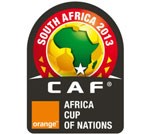The 2013 African Cup of Nations (Afcon) football tournament that launched last week was recently declared a 'protected event' in terms of the Merchandise Marks Act by Trade and Industry Minister, Rob Davies. The upshot is that companies that are not an official sponsor can in no way use the event to promote their own brand, and may be subject to harsh action if they do.
Lauren Frizelle, an associate in ENS' IP Department, says this means that the severe ambush marketing restrictions that characterised the 2010 FIFA World Cup will also apply to the Afcon tournament. "In essence, ambush marketing occurs when a business tries to get mileage out of an event that it hasn't sponsored. The most obvious way for a business to do this is to use the event's branding - the name, the logo, the strapline - in relation to its own product. This is, of course, illegal."
"It is likely that the organisers of the event will have trade mark registrations for the event's branding covering a wide range of goods and services, so any unauthorised use will amount to trade mark infringement. In addition, the event's branding will in all likelihood be well known, with the result that consumers seeing it used in relation to the business's product will wrongly assume that the business is a sponsor of the event, or that there is at least some commercial relationship. So there will be passing off, which is an offence under the Trade Practices Act."
Contravening the ASA code
Frizelle notes that the business's conduct may also contravene the ambush marketing provisions of the Advertising Standards Authority (ASA) Code. "Furthermore, it is possible that certain aspects of the event's branding such as the official logo will be declared prohibited marks under the Merchandise Marks Act, in which case it becomes an offence to use them without authority - for the 2010 FIFA World Cup a whole host of words, phrases and images were declared prohibited marks, including the official World Cup logo, and terms like 'World Cup 2010', 'South Africa 2010' and 'SA 2010'.
"Most businesses know that the use of an event's branding is an absolute no-no; but they do still like to create a link or at least an impression of a link with a big event. They try to do this subtly, without actually using the event's branding. This conduct is sometimes referred to as ambush marketing by intrusion."
Consequent to pressure by sponsors of the 2003 Cricket World Cup to put in place mechanisms to stop this kind of ambush marketing, Section 15A was added to the Merchandise Marks Act. This controversial section states that in the case of a 'protected event', it is an offence for a business that is not an official sponsor of that event to 'abuse' the trademarks and branding of the event. The business will be guilty of doing this if it associates its own brand or business with that of the event, or if its brand even alludes to the event, in a way in which the business derives publicity or promotional benefit.
"Section 15A is very broad and could conceivably cover all manner of things: a business arranging for an aircraft to fly over a stadium with a banner advertising its business; a radio station setting up a broadcast unit outside a stadium on match day; a business handing out t-shirts featuring its brand to people entering the stadium (in the hope that the t-shirts will be shown on TV)."
FIFA vs Kulula
During the 2010 FIFA World Cup, FIFA was able to persuade Kulula to stop using an advertising campaign which featured the use of the term 'Unofficial National Carrier of the You-Know-What' together with stylised pictures of the Cape Town stadium, soccer balls, vuvuzelas, a soccer player, and the South African flag.
"In 2010 the authorities also used municipal legislation to introduce certain practical measures aimed at enforcing the ambush marketing prohibitions - for example, exclusion zones were set up around stadiums and on roads leading to stadiums. Whether or not this will occur with Afcon 2013, remains to be seen," says Frizelle.
"What is clear, however, is that businesses should always be very careful before trying anything that might be construed as ambush marketing.. As always, if you're hoping to leverage this event, make sure you take advice first," concludes Frizelle.































